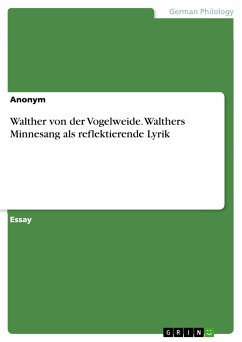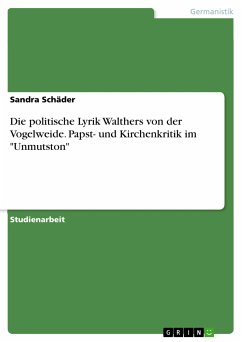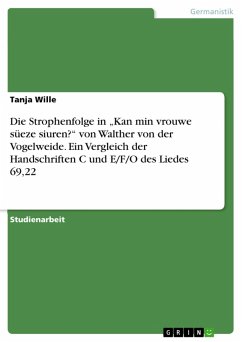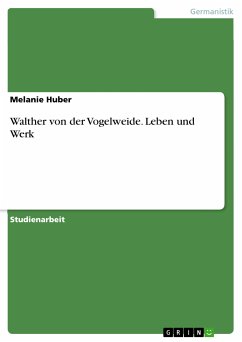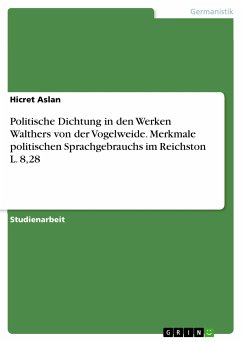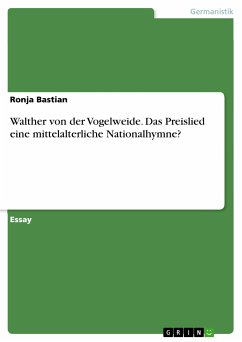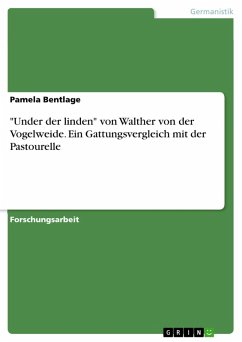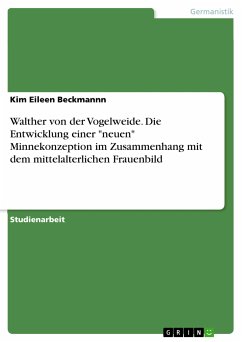Essay from the year 2019 in the subject German Studies - Older German Literature, Medieval Studies, grade: 1,7, University of Cambridge, language: English, abstract: Unfortunately, today we do not know much about the lecture situation and the meaning with the identical real author. Elisabeth Lienert, however, creates by approaching the author through her internal singing role. Because: 'Methodisch sind autopoetische Aussagen des Sängers [...] Kunstaussagen auf der Ebene der liedinternen Rollen, [die] nicht mit Autoraussagen gleichzusetzen [sind]' (Lienert 115). Lienert argues that there are no direct author statements in Minnesang, but rather that one could speak of the author aspect of the singer role (Lienert 116). In their opinion, author and lecturer coincide in the singer-ego, unless the motif of the song is the lecture to a lover by a messenger or the courted lady herself reads the message conveyed to her. Lienert takes the view that the author usually disappears behind the performer, leaving traces at best in so-called 'author-specific characteristics' resulting from the characterization and design of the singer roles (Lienert 118). Therefore, it is now necessary to discover the roles through which Walther lets his 'lyrisches Ich' speak. There are roughly two types of roles. On the one hand, the role of the 'Minnenden', the advertising I, and on the other hand, the role of the Singing I, for the one thing in relation to the service to the lady and on the other hand, in relation to the service to society. Moreover, both roles can also be related to each other.
Dieser Download kann aus rechtlichen Gründen nur mit Rechnungsadresse in A, B, BG, CY, CZ, D, DK, EW, E, FIN, F, GR, HR, H, IRL, I, LT, L, LR, M, NL, PL, P, R, S, SLO, SK ausgeliefert werden.

